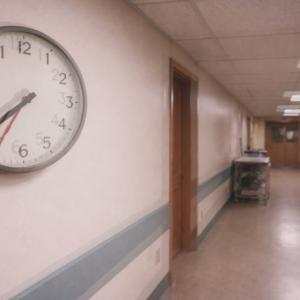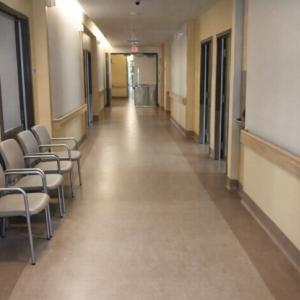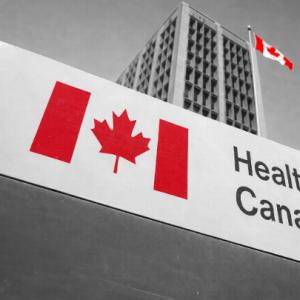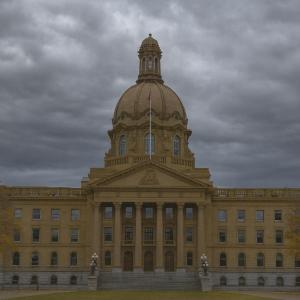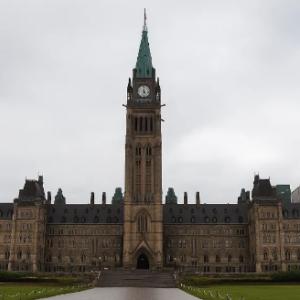America’s medical profession is collapsing. Canada’s just got stronger.
B.C. just rolled out a law to protect the public from dangerous doctors. Why are some doctors spreading disinformation about it?
22 years ago, British Columbia’s Office of the Ombudsperson released a scathing report on the failures of the College of Physicians and Surgeons of B.C. to properly investigate and discipline doctors. Systemic inaction, lack of oversight, and an overall culture of impunity were the key findings.
Then nothing happened. Not for a long time.
For nearly two decades, the province’s medical regulator carried on, unabated, unbothered, and unreformed.
Why then, did reform finally arrive in 2022 with the passage of Bill 36, the Health Professions and Occupations Act (HPOA)?
The answer lies in the political and public health breakdown of the COVID pandemic. And in a name that, in a world that made sense, would be more widely known in this country: Dr. Charles Hoffe.
Hoffe is a family physician from Lytton, B.C., who became one of Canada’s most prominent medical disinformation figures.
He publicly promoted false claims that the COVID vaccine is more dangerous than COVID-19 itself, invoking pseudoscientific explanations. His videos circulated widely, fueling fear and vaccine refusal.
When the College of Physicians and Surgeons of B.C. took action, it marked a national turning point. Those watching saw clearly that disinformation wasn’t just an American problem. It was here in Canada, and had consequences.
B.C. was the first place in North America to respond to the disinfo-threat with real structural reform.
While self-regulation failed utterly to keep up with the emergence of an ivermectin-slinging grifter class, B.C. did what no U.S. state (and no other province) would: it passed a law to protect the public.
Bill 36 stripped away the fig leaf of physician self-regulation and restructured medical governance. Now, compliance and discipline will be overseen by an independent office, with stronger transparency and accountability mechanisms and enhanced protections for patients.
For decades, physician self-regulation has operated almost entirely in the dark. Disciplinary outcomes were selectively disclosed, investigations were confidential, and abuse and fraud were shielded from public view behind a veil of professional autonomy.
This is still the norm in most places.
Bill 36 removes disciplinary power from colleges and hands it to an independent tribunal. It even allows online public activity (such as off-colour Facebook comments in public groups) to be reviewed in relevant cases.
In 2025, the necessity of allowing a regulatory agency to review doctors’ public online activity should surprise no one. Bill 36 gives regulators this authority — and that’s good.
We’ve seen time and again the outsized influence and social harm that can be wrought by a small number of disinfo-spreading doctors who happen to be social media power-users.
The reaction from organized medicine was swift and familiar. One group, formed in 2022 and calling itself the Canadian Society for Science & Ethics in Medicine (CSSEM), published a flyer warning that the Act would lead to “loss of morale,” “loss of informed consent,” and “loss of privacy.”
CSSEM led a targeted fearmongering campaign to provoke outrage and mislead doctors on the nature of Bill 36. They used the same rhetorical playbook the American Medical Association used to fight Medicare in the 1960s, racial integration in the ’50s, and medical board reform across the 20th century.
In reality, CSSEM only represents about 50 doctors, but their alarmist messages have been amplified across social media platforms as if they were majority opinion. We’ve seen this movie before.
In the 1940s and again in 1962, physicians in Saskatchewan (and later across Canada) fought Tommy Douglas’ efforts to introduce universal health insurance. They said Medicare would destroy patient choice, politicize care, and undermine the profession. Some of these doctors went on strike.
They were wrong on all counts, of course.
Public pressure prevailed. And despite its imperfections, Canada’s healthcare system became a defining point of national identity and pride.
Why bring this up now?
Because the same fear-based rhetoric is being recycled here and now, this time to resist professional accountability. The current backlash, intentionally or not, directly shields a politically motivated disinformation campaign being led by licensed physicians.
The consequences aren’t abstract. Lack of accountability leads to real provincial costs: disinformation-fueled healthcare decisions, misused public funds, and growing distrust in evidence-based care.
The Canadian Medical Association warned of this in its official 2025 Federal Election Platform, urging political leaders to:
“Support doctors and other health professionals in the fight against false information that makes it difficult for them to deliver care and jeopardizes the health of Canadians.”
And yet, Doctors of BC chose instead to mirror the tactics of CSSEM, the very group with a history of undermining public health guidance under the guise of protecting physician autonomy.
Opposition to Bill 36 adopts the same language used to protect disinformation actors in the United States: vague warnings about politicization, overreach, and unintended consequences.
The danger of course, is not transparency, but what happens without it.
Unfortunately, Doctors of BC followed CSSEM’s lead, just with a more polished document. The substance was similar: resistance to compliance audits, fears about social media monitoring, objections to new definitions, and vague warnings about facility closures. It’s the language of a profession clinging to power, even when that power has come at the public’s expense.
On July 4, 2025, Doctors of BC sent a mass email from their president urging physicians to join their resistance strategy. They claimed Bill 36 would increase paperwork, disrupt care, and drive up system costs. They launched a province-wide push for physicians to voice opposition.
Practicing physicians should know: this is not an attack on you or your practice. It is a warning.
A warning from an American who just watched the professional practice of medicine in the U.S. surrender its most basic epistemological and ethical principles to an authoritarian regime.
Medicine must be grounded in science, or it will be overrun by political ideology and hucksterism.
This is what’s happening in America now, and it’s what’s at stake in Canada going forward.
Just as right-wing media in the U.S. elevated disinformation doctors into folk heroes, some Canadian doctors — who’ve become darlings of the right — are prolific spreaders of falsehoods that undermine public health.
The disinformation isn’t limited to COVID. It extends into regulatory fearmongering — the idea that any oversight is government overreach. What they’re really afraid of is losing their personal sense of exceptionalism, along with their impunity.
In a post-COVID world, that impunity is more dangerous than ever. Because it’s now brutally clear that rolling back decades of public health progress was never about perceived overreach. It’s just the latest front in the far right’s war on democracy.
Medicine is venerated not because doctors are infallible, but because medicine, at its best, is anchored in honesty and a shared empirical reality. It draws its authority from the same foundation that democracy depends on: the ability of people in a society to operate on facts, to test and verify claims, to trust institutions that serve the public based on evidence.
When this is corrupted, the consequences are not limited to health outcomes. The entire social contract begins to rot.
For years, Canada has been flirting with America’s political collapse — the Freedom Convoy was a real and direct threat to Canadian democracy, backed and amplified by the American conservative movement. Pierre Poilievre’s alignment with that anti-democratic uprising, his refusal to condemn medical disinformation, and his ideological kinship with Trumpism all made clear what was at stake.
The same funding networks that weaponized disinformation in the U.S. fuelled the convoy in Canada, turning a fringe protest into a global spectacle.
If any Canadians still believe this threat is theoretical, they should know: in early 2025, the College of Physicians and Surgeons of BC formally dropped its disciplinary case against Dr. Charles Hoffe, despite ample evidence that he spread vaccine disinformation. The decision was confirmed by the CBC in February.
Shortly afterward, Dr. Hoffe appeared publicly alongside two of America’s most notorious disinformation doctors: Drs Peter McCullough and Pierre Kory, who were both previously stripped of their board certifications for spreading medical disinformation.
After the College backed down, the three men and the disinformation network celebrated Hoffe’s “exoneration” and a win for “free speech.” But in truth, that exact argument had already been defeated in U.S. federal court.
In Kory v. Bonta (2024), Dr. Pierre Kory, Brian Tyson, and others — represented by Robert F. Kennedy Jr.— filed a federal lawsuit against the California Medical Board. They sought to strip the Board of its authority to discipline physicians under California’s longstanding unprofessional conduct statute. They claimed that enforcing any professional standard — including for gross negligence or medical fraud — violated their First Amendment rights.
In effect, they argued that there is no enforceable standard of care.
Their argument was thrown out by the judge, who wrote:
“The statute regulates conduct, not speech. It provides for enforcement of the standard of care, which is the standard for physicians’ treatment of patients.”
The Ninth Circuit affirmed. The U.S. Supreme Court declined to review the case. And the ruling now stands as precedent, as well as a rebuke to any claim that professional accountability is unconstitutional.
Free speech for citizens is not the same as free speech for medical licensees. A license is not a right. It is a privilege. If we abandon professional standards, there should be no professional licensure at all.
So, when organized medicine tells you that reforms like B.C.’s Bill 36 go too far, remember: the only thing worse than action that comes too late is no action at all.
Bill 36 isn’t perfect. But it’s necessary.
---
Code Black is a pseudonymous physician and health policy expert who now practices in Canada. Their previous Canada Healthwatch articles include I traded my U.S. medical career for life in Canada, and Notes from the ER in an Anti-Science Age.

